Theatre is My Sport
Despite the mental and physical stamina it requires, theatre is overlooked in comparison to traditional physical activities.

What makes a sport?
I’ve asked myself this since elementary school P.E. when I would drift to the corner, singing Wicked or Annie to myself, narrowly avoiding getting hit by whatever ball people were throwing around.
When I turn to Google to answer my question, the first result is “an activity involving physical exertion and skill in which an individual or team competes against another or others for entertainment,” which seems like a fair place to start.
Traditional sports, such as soccer and basketball, are a big part of the School. I love hearing the latest announcements of games and getting to cheer my friends on during the different seasons.
From cross country to curling, so much is included under the umbrella of sports, allowing students to pick the activity that will suit them best.
In my case, I often joke that I do the school a favor by staying off of its sports teams. But in truth, I am also busy after school. Since sixth grade, I’ve participated in every school theatre production I was able to.
I am so grateful for the attention that the School has given to the theatre program during my time here, and great progress has been made in that regard. Still, with the current calculus, doing both the play and the musical count as one team credit—not two. Theatre, whether it’s a play or musical, is a team sport and should be treated as such.
Theatre may look like just fun and entertainment, but it is often overlooked for how much of a physical, emotional, and mental commitment it is.
Let’s start with the time commitment. To get a show up in two months is no easy feat. Rehearsal occurs every week Monday through Thursday from 3:30 p.m. to 5:30 p.m., with even the occasional Friday rehearsal or six-hour Saturday call.
Rehearsals only work when as many people as possible are present. Sometimes we work on specific scenes, but in the case of a big musical, a rehearsal needs to have different groups of people tackling other elements so that the show can keep moving.
Rehearsal is a time of focus, even if you’re not actively on stage, so it’s not like we can use it to get caught up on schoolwork.
On days when I am called, I don’t get settled at home until around 7:00 p.m. I fail to see how this is different from student-athletes spending an hour or two after school at practice.
Then comes tech week, where the average rehearsal can last until 9:00 p.m. It is already a stressful and draining time, and with the time commitment, it requires even more dedication. I don’t know of a sport that asks students to stay at school for six hours every evening for a week.
Just like an athlete may train on their own or work out at home, theatre’s commitment goes far beyond what we do in rehearsal. We need to work on the music and choreography constantly, so we don’t forget them.
Theatre asks for an incredible amount of independent work. It requires memorization, which, like any skill, is only gained over time. For perspective, during the fall play, Trap, I would spend nearly an hour every night before I went to bed just working on my lines.
Many also overlook the physical demands of theatre. Rehearsals can often be long and strenuous. Even in a straight play, participants constantly stretch, move, and are active. Like a traditional sport, this requires you to push yourself and build up stamina and strength.
Finally, when it comes to team building, nothing is like theatre. It makes a group of people come together to unite over one goal. However, instead of the stakes of competing and being “the best,” theatre forces cooperation and trust.
Everyone has a role to play, and I have never felt more support and community than when I am on stage. The life skills gained in theatre, like responsibility, confidence, and trust, go beyond the stage and can benefit a student for life, no matter what path they take.
From an audience perspective, theatre may look like just fun and entertainment, but people often overlook how much of a physical, emotional, and mental commitment it is.
It may be different from traditional athletic activities, but that doesn’t make it any less challenging or important. I am beyond grateful for the theater opportunities I have been provided at the School and the attention the program receives. Yet, when I am told that athletes who can do two seasons of a team sport get the third off to refresh, while those who spend hours in the fall and spring working and creating after school do not, I wonder how much this commitment is truly understood.
Editors' note: This article was updated Friday, March 4 to clarify sports credit given through theatre.
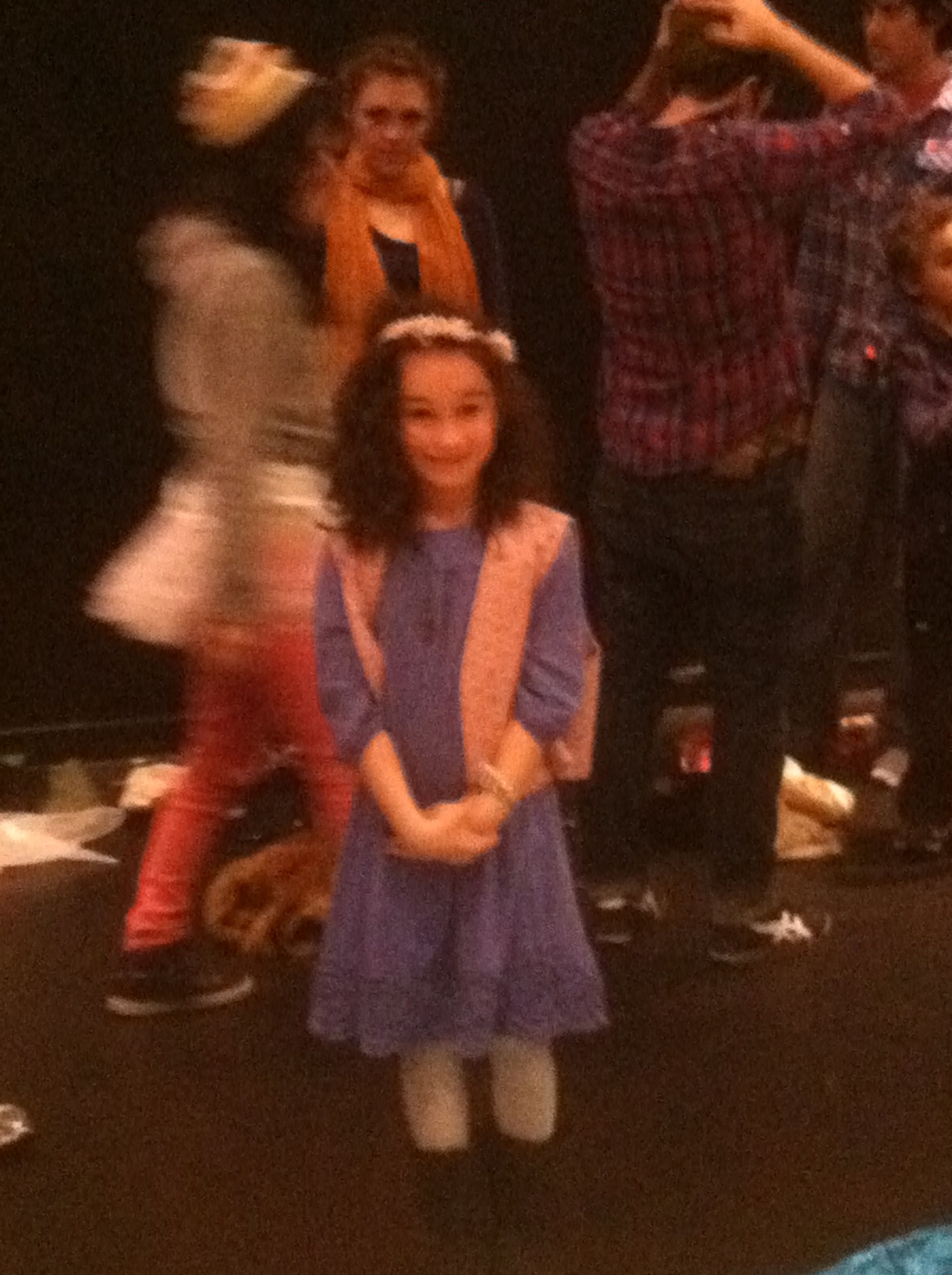
Kass, 7, in The Snow Queen. Photo by Robert Kass.
Kass, 7, in The Snow Queen. Photo by Robert Kass.
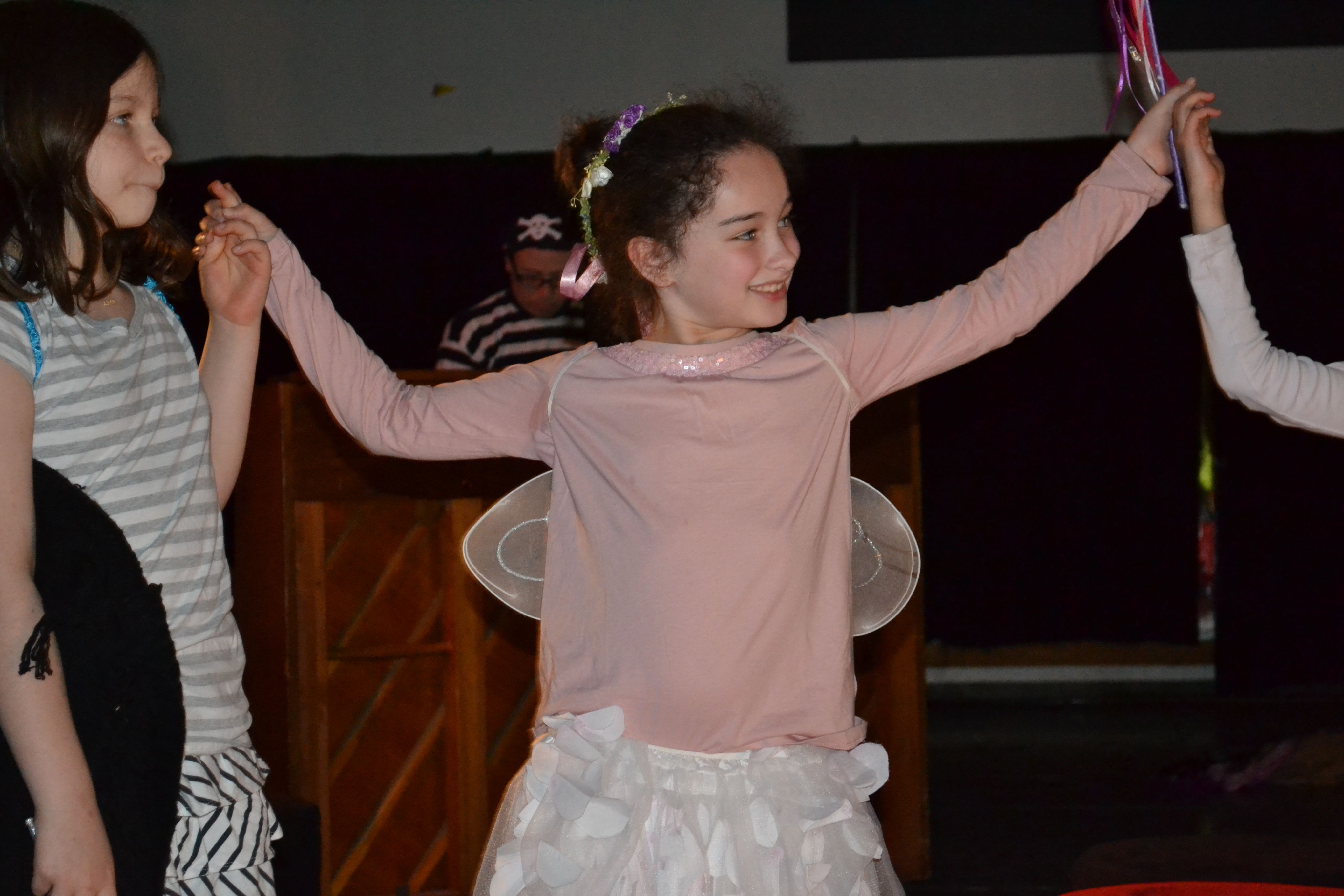
Marlie Kass, 8, as Tinkerbell in Peter Pan. Photo by Robert Kass.
Marlie Kass, 8, as Tinkerbell in Peter Pan. Photo by Robert Kass.
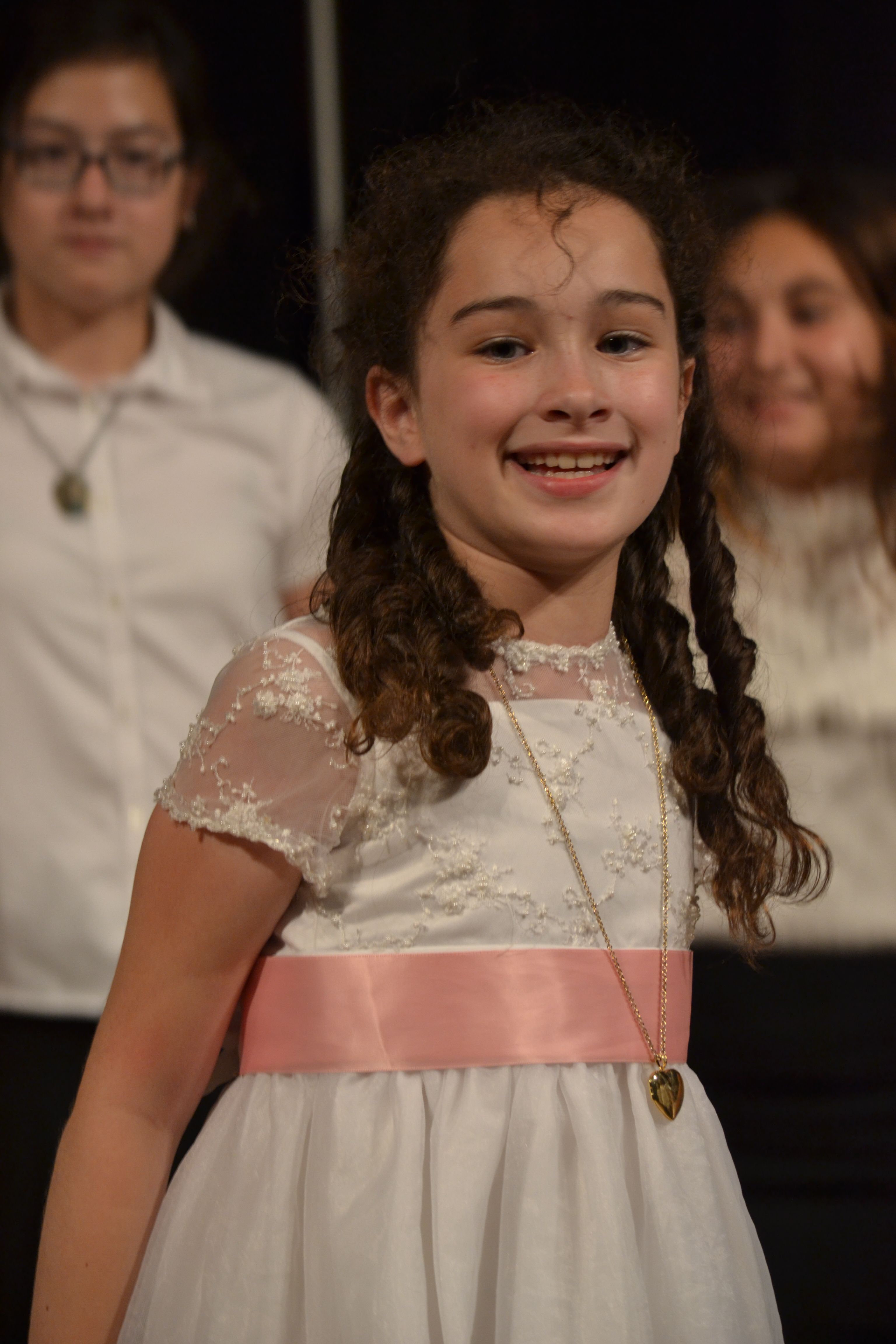
Kass, 9, as Annie in Annie. Photo by Robert Kass.
Kass, 9, as Annie in Annie. Photo by Robert Kass.
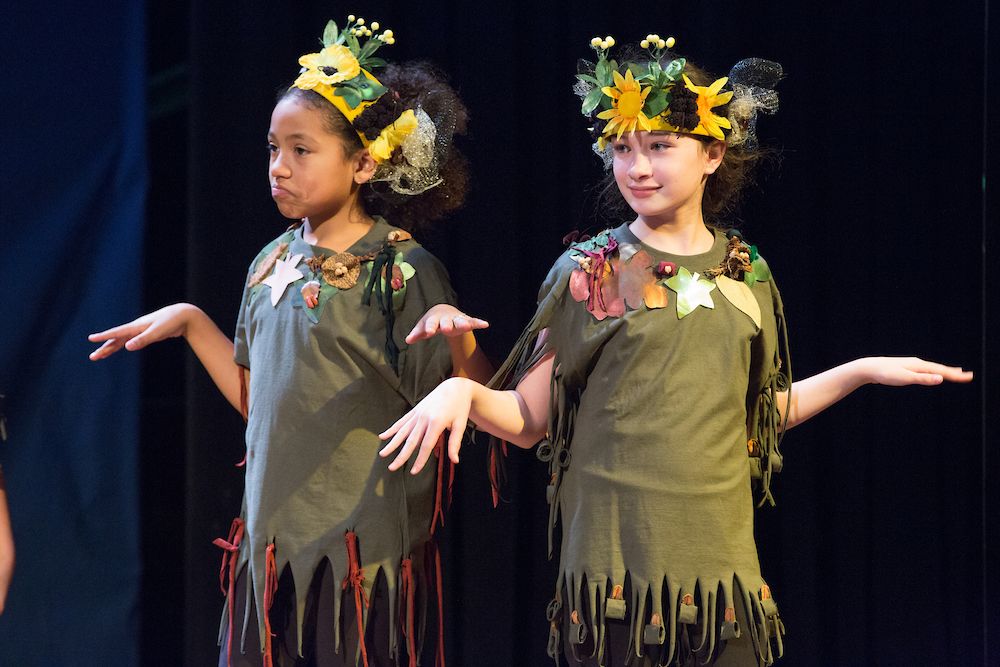
Kass, 10, as a bumblebee with Kaylee Little '23 in Thumbelina. Photo by David Barron/Oxygen Photo Group.
Kass, 10, as a bumblebee with Kaylee Little '23 in Thumbelina. Photo by David Barron/Oxygen Photo Group.
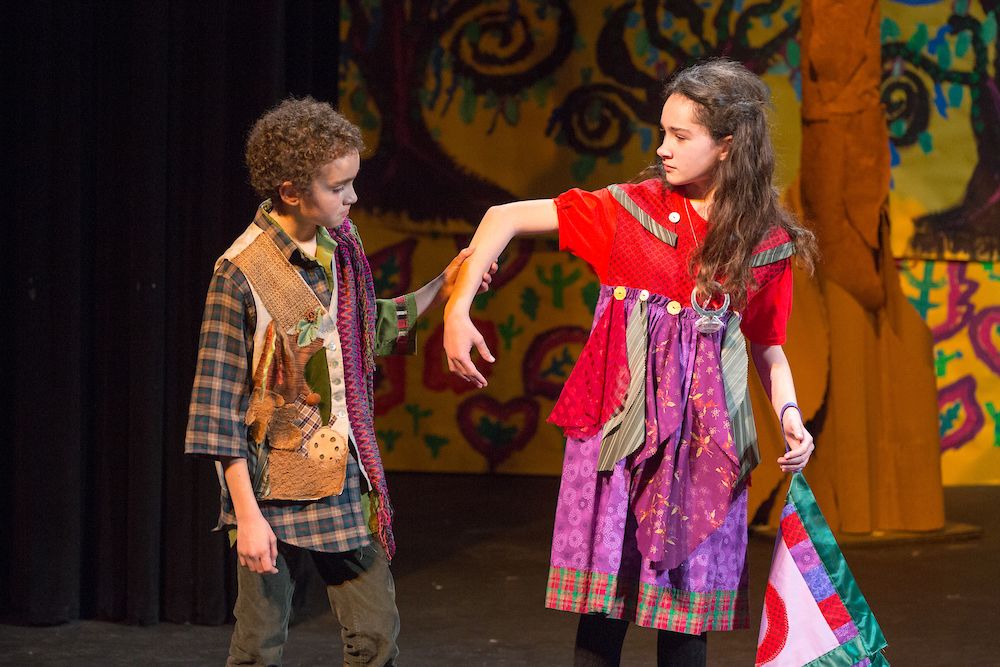
Kass, 11, as Princess, shares a scene with Edan Zinn '23 as Rumpelstiltskin in Princess Whatsername. Photo by David Barron/Oxygen Photo Group.
Kass, 11, as Princess, shares a scene with Edan Zinn '23 as Rumpelstiltskin in Princess Whatsername. Photo by David Barron/Oxygen Photo Group.
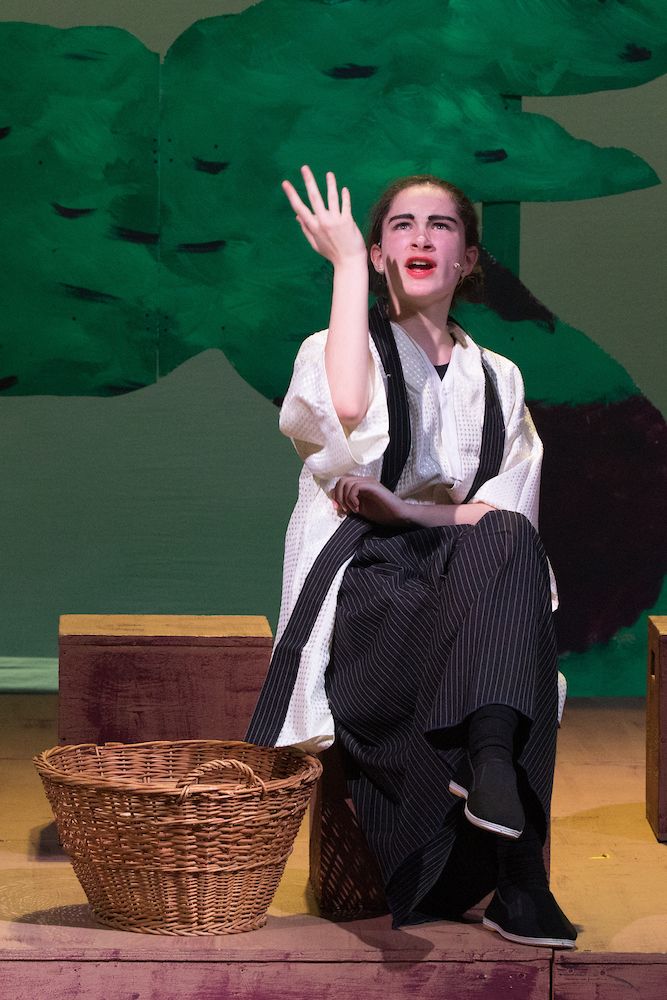
Kass, 12 years old, as Kozo in In a Grove. Photo by David Barron/Oxygen Photo Group.
Kass, 12 years old, as Kozo in In a Grove. Photo by David Barron/Oxygen Photo Group.
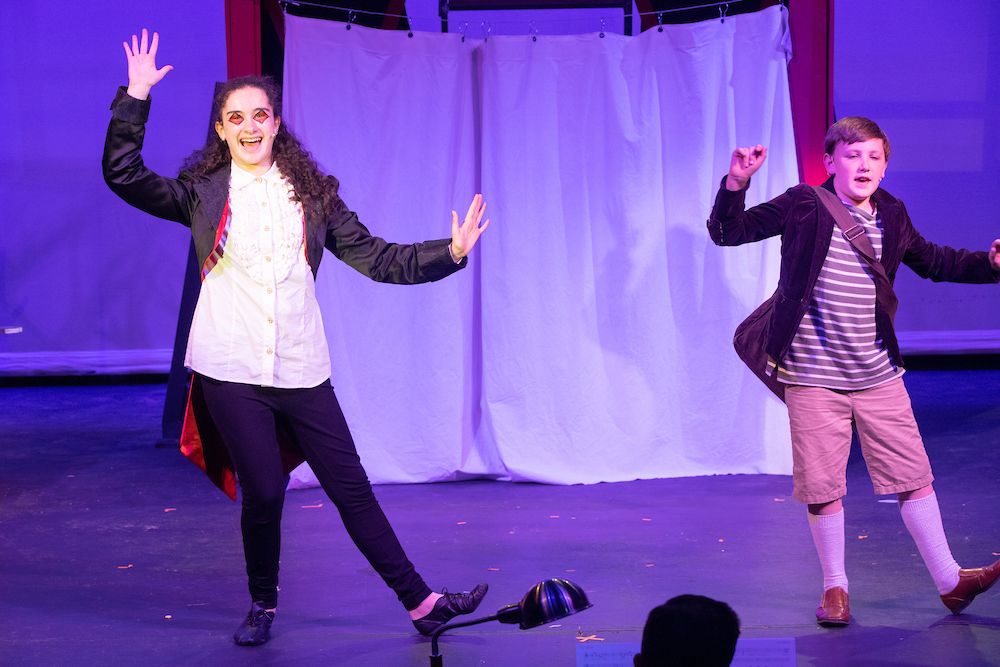
Kass, 13, as Ladahlord, shares a scene with Daniel Murray '23 as James in James and the Giant Peach. Photo by David Barron/Oxygen Photo Group.
Kass, 13, as Ladahlord, shares a scene with Daniel Murray '23 as James in James and the Giant Peach. Photo by David Barron/Oxygen Photo Group.
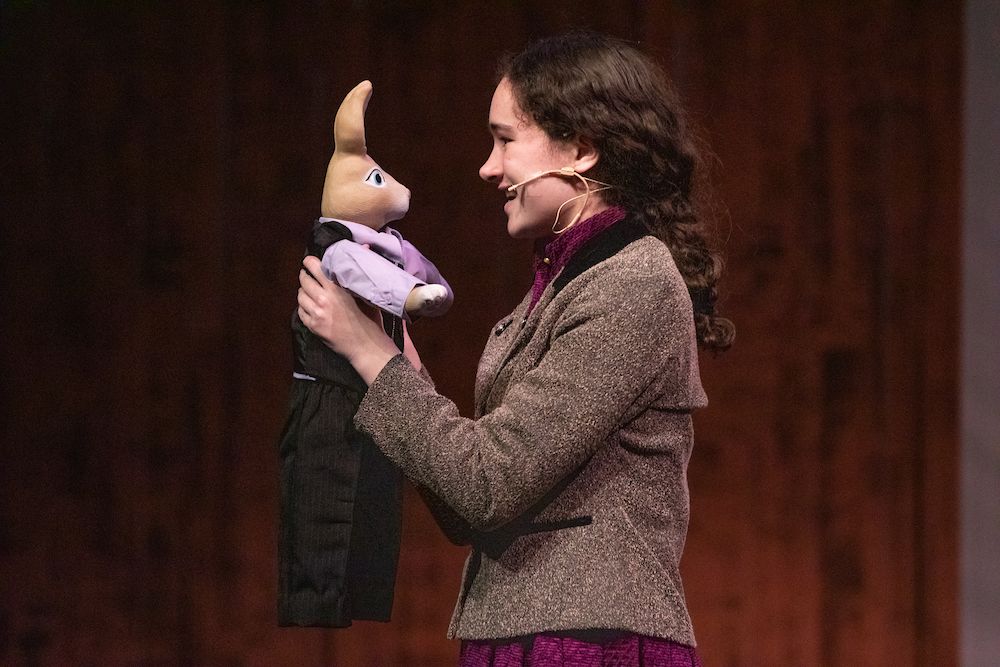
Kass, 13, as Pellagrina in The Miraculous Adventures of Edward Tulane. Photo by David Barron/Oxygen Photo Group.
Kass, 13, as Pellagrina in The Miraculous Adventures of Edward Tulane. Photo by David Barron/Oxygen Photo Group.

Kass, 14, as Mayzie LaBird in Seussical the Musical. Photo by David Barron/Oxygen Photo Group.
Kass, 14, as Mayzie LaBird in Seussical the Musical. Photo by David Barron/Oxygen Photo Group.
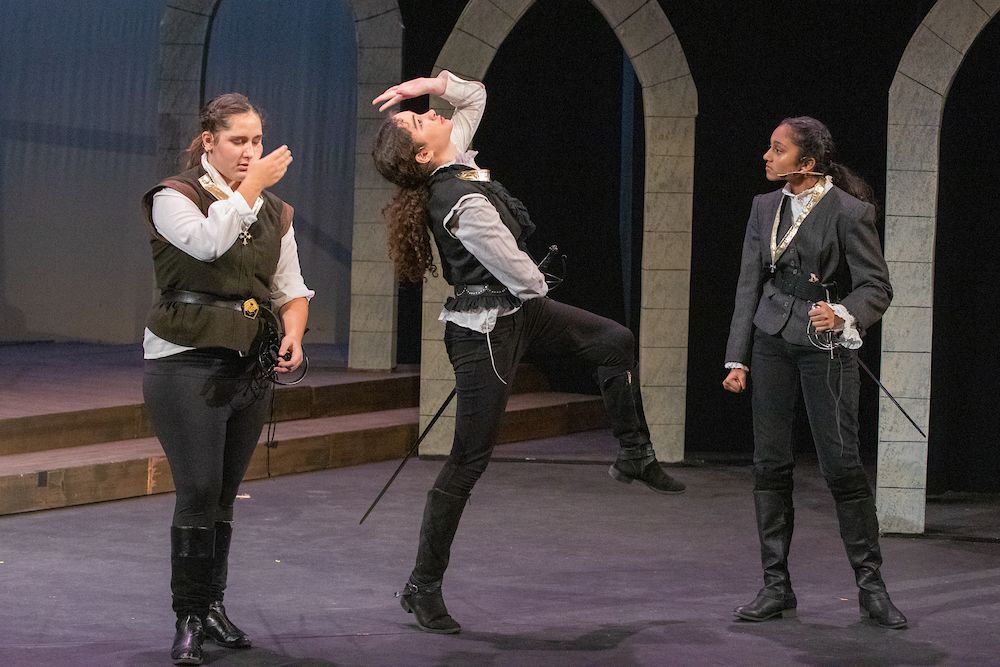
Kass, 14, as Porthos in The Three Musketeers. Photo by David Barron/Oxygen Photo Group.
Kass, 14, as Porthos in The Three Musketeers. Photo by David Barron/Oxygen Photo Group.
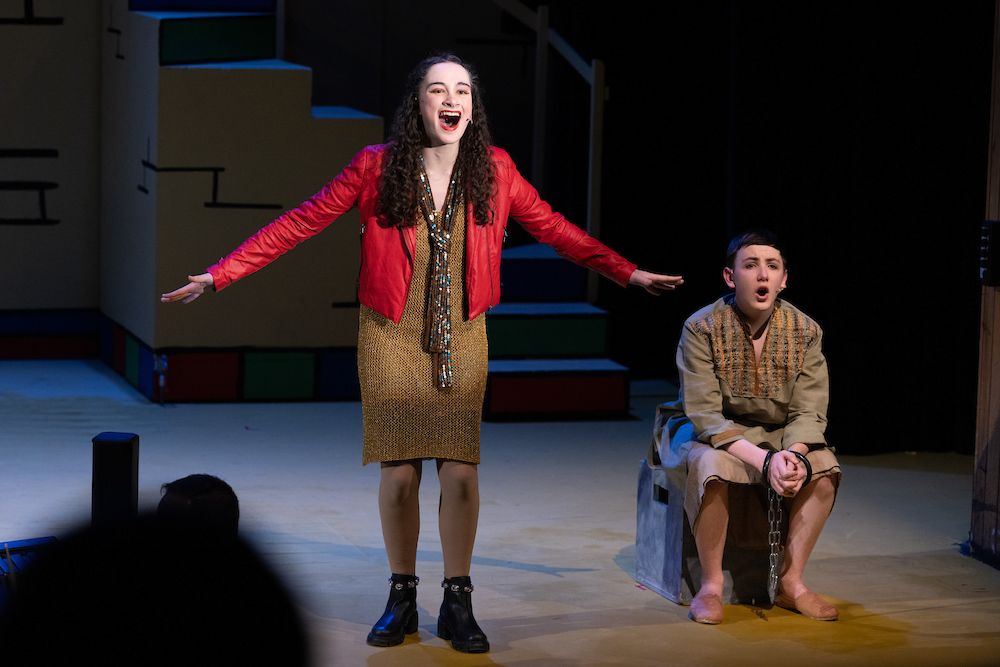
Kass, 17, as the Narrator in Joseph and the Amazing Technicolor Dreamcoat with Daniel Murray '23 as Joseph. Photo by David Barron/Oxygen Photo Group.
Kass, 17, as the Narrator in Joseph and the Amazing Technicolor Dreamcoat with Daniel Murray '23 as Joseph. Photo by David Barron/Oxygen Photo Group.
